|
With Discovery's final season days away, let's take a dive into the sordid journey of Paramount Global and how they've handled the Star Trek franchise.
It starts with a simple concept: While Netflix made $5.5 billion in revenue in 2014, CBS All Access, the CBS streaming service which was launched that same year, wasn't making a profit and was costing CBS money. CBS executives decided that streaming was going to be the future of media and that they should focus on revamping CBS All Access to make it profitable. That meant exclusive content would be created to attract a strong subscriber base. The more new subscribers they could gain, the closer they can get to making CBS All Access as profitable as Netflix (insert laugh emojies).
In late 2015, Bryan Fuller pitched a Star Trek prequel series. It was a golden opportunity for CBS to inject new life into their streaming service, and they eagerly greenlit the project for a 2017 release. There was one caviat: Executives decided to pair him up with a man named Alex Kurtzman and together they would co-executive produce the show. Fuller had worked as a writer for Deep Space Nine and Voyager while Kurtzman was a writer for the 2009 Star Trek film. This pairing up was seen as a way to ensure that Discovery would appeal to both fans of the classics and new audiences.
While Fuller brought a wealth of Trek knowledge to the table, clashes with CBS executives over the show's creative direction soon emerged. This caused Fuller's team to eventually fall behind schedule and by October of 2016, executives at CBS asked Fuller to step down. Kurtzman then became the executive producer in charge, where it is believed he played a "yes" man to the new direction the executives wanted to go.
This is where I believe CBS made their first error. CBS made the critical mistake of assuming that the mere presence of the Star Trek brand would be enough to lure in fans, regardless of the quality of the content. They didn't understand the importance of continuity or of Federation values in the Trek universe and decided to treat the visuals and the crew as if the show took place in the Kelvin timeline, an alternet universe created by JJ Abrams that started off well before fizzling out after three films. This forced change in who was in charge of Trek could be seen symbolically as the moment where CBS executives chose to appeal to newer audiences and ignore the wishes of classic Trekkies.
As the the writing progressed, executives and the production team took moronic risks with the show, such as redesigning the Klingons into Klingorcs (a decision seemingly backed by Fuller, but I doubt he would have backed THAT design) and centering the narrative around a mutineer named Michael Burnham. Pre-Production and Production was rumored to be a bit hostile. They would try to throw money at the problems as these initial episodes cost millions to make. The first part of the first season was so bad, it spawned it's greatest critic - Doomcock - into existance. He was so outraged, he started a YouTube channel which became pretty successful with over three hundred thousand current subscribers in the seven years it's been around. When the inevitable backlash occurred, they ever so slightly changed direction to introduce Pike's Enterprise in the end of the first season.
In an attempt to protect the CBS brand, articles were soon produced claiming that Discovery's first season hadbroken records and was universally loved. More divisively they also claimed that anyone who didn't like it had some sort of issue with ablack woman lead or a gay couple as part of the crew. They overemphasized the diversity of the cast while ignoring the problems with the writing and aesthetics, believing the criticism would blow over.
Over the years, ignoring or belittling the critics resulted in missed opportunities for the show to truly grow and innovate. Instead, they doubled down and announced three new Trek shows. Picard was annouced in August 2018, Section 31 was announced in January of 2019 and Lower Decks was announced in July of 2019. That same year, CBS remerged with Viacom to create ViacomCBS. The merging allowed both companies, who had initially split back in 2006, to lower overhead costs and pool resources to invest more in CBS All Access. Still, it didn't make the streaming service profitable.
As a side note, while the merger was going on, articles accusing Discovery critics of being alt-right trolls and racists were being released at a pace similar to a political campaign. This would produce a number of consumers who would consume the newer Trek shows purely out of political spite, painting anyone who had criticisms of the show as bigots and believing that the continued "success" of the show was a way to "own" the alt-right. They would accuse critics of being "toxic fans", creating blocklists for them and their followers and booting critics from fan pages while accusing them of "gatekeeping".
I befriended a few of these people who were considered toxic fans, many of which were life long fans of science fiction. I found that these people just wanted better entertainment. Even if we didn't agree on everything, we could agree that this version of Trek was not canon and was purely not in conjuction with the original vision created by Gene Roddenberry. Sadly even certain members of the cast and crew would jump in and throw out similar accusations against these fans. By January of 2020, the same month Picard season one premiered, a new show called Prodigy was announced, bumping the show count to four. (Section 31 stayed in development hell until it was downgraded to a streaming movie in April of 2023)
As for Star Trek Picard, the first season failed to resonate with audiences as expected. One issue was the questionable premise of Dahj and Soji being played off as Data's "daughters", contradicted his creation of Lal in TNG who Data actually built.
The writing and dialogue suffered immensely, diminishing the once authoritative but eloquent speeches Jean-Luc used to give. The worst part was that they killed Jean-Luc off, only to turn him into an old android. (BTW, is anybody else tired of seeing Patrick Stewart's characters die? I swear when Wanda snapped his neck in Multiverse of Madness, I was like "oh come on, not this shit again!") Despite efforts to portray the Picard show as a success, various indicators suggested otherwise.
As for Discovery season two, the advertising was so disruptive to my social media scrolling that I myself had decided to enter the chat. Not through YouTube, just through social media and this website. At the time, I didn't understand that millions were on the line and so the creators and consumers would push back hard. I figured "it's just a TV show. The world is going to shit, nobody's going to care if I trash a TV show". Yet when a lot of money and creative clout is at stake, it seems to turn grown men and women into highschool drama queens.
Out of all the criticisms about the second season, the casting of Anson Mount as Captain Pike seemed to be the most well received. Fans of Discovery wanted a Pike show and they got their wish on May of 2020, when they announed Strange New Worlds. So now with five Trek shows on CBS All Access including season three of Discovery which premiered October 2020, it was hard to argue that this new vision for Trek was unsucessfull.
Despite the "success" of NuTrek, the merger, the annoucements and the response to criticism of Discovery, it all did little to make CBS All Access profitable so by 2021, they decided to rebrand again. This time renaming the streaming service to Paramount+. They also decided to sell props and costumes from Discovery seasons one and two that September. In 2022, ViacomCBS was rebranded to Paramount Global. They even started making Superbowl ads where Michael Burnham and Captain Pike teamed up with the likes of Bevis and Butthead and Snooki on an expedition up a fictional "Paramount Mountain" to meet up with Patrick Stewart and Stephen Colbert so they could watch a musical performance by Spongebob. It ended with Stewart narrating, "and so they lived happily ever after on this mountain of entertainment... which is also a streaming service!"
This would have been the part where Morgan Freeman would have butted in to say, "No. They did not live happily ever after".
No amount of rebranding was going to bring in potential subscribers when the twitter account for Paramount+ was blocking those same potential subscribers. Stuff like that and the way people involved in the creative process treated critics of the shows led to an alienation of their viewers and damaged Paramount's reputation, resulting in a loss of trust from the once built in Star Trek fanbase who eventually decided to walk away.
By 2022, Netflix was making thirty one billion dollars in revenue while Paramount was fifteen billion dollars in debt. Strange New Worlds premiered that May and proved to be more of a reboot than a prequel series. In a possible effort to make some sort of a profit off the Picard show, an auction of props from Picard seasons one and two were sold off in November.
2023 saw Paramount's debt rise to almost seventeen billion dollars. February of 2023 would mark the premiere of the final season of Picard, where I somehow found myself in a strange fued with the show runner. By March of 2023, it was announced that the former flagship show Star Trek Discovery would be cancelled, with it's final season airing in April of 2024. Finally, on June of 2023, Prodigy was abruptly cancelled, despite the second season being in production and was pulled from Paramount+. It would later move to Netflix, but after three cancelled shows in a year, the kink's in the armor of what was once called the "second golden age of Star Trek" began to show.
In the end, there was no second golden age. Discovery didn't resurrect Trek like people try to claim. All these shows were simply content for a streaming service that has been bleeding money for almost a decade. They would have made them regardless of whether anybody liked them or not. Classic Trek was art. Modern Trek is content.
It would further be revealed that in the decade it has existed, Paramount+ has yet to make a profit. The billions of dollars Paramount threw into the infulstructure and exclusive content for Paramount+ and none of that content, Star Trek or otherwise, was enough to put Paramount+ in the green. Paramount went as far as to sell Simon and Schuster for $1.62 billion dollars and were still in debt.
Another thing happened that may be relevant to this conversation. In November it was reported that HBO network executives directed employees to create fake Twitter accounts to combat criticism of HBO shows. The claim arose from a wrongful termination suit with an ex-employee and highlights a strategy of using fake accounts to undermine critics posting negative reviews on social media, raising serious ethical concerns. While I wont go so far as to accuse Paramount of the same thing, I will say that the possibility of Paramount manipulating the conversation to deflect criticism can be implied.
By the end of 2023, there was a meeting between Paramount CEO Bob Bakish and Warner Bros Discovery CEO David Zaslav and the topic of the discussion was about a potential merger. In January of 2024, there were reports that Skydance Media founder David Ellison was thinking about buying Paramount's parent company, National Amusements.
It seems as though Shari Redstone currently wants to sell Paramount. I'm not saying that Star Trek's decline is the sole reason that Paramount is in decline, they were obviously mismanaging other franchises around this time too. They gave the South Park people almost a billion dollars to make new seasons and specials and not only did it not make Paramount+ a profit, but it lost money in legal fees when it was sued by Warner Brothers over who was supposed to stream the new seasons and specials. Paramount seems to have a habbit of mismanaging their properties.
It was reported in February of 2024 that Paramount had laid off some of it's workers and was in talks to possibly merge streaming services with Peacock. Most recently, Warner Bros. Discovery halted talks of a merger, but it's now rumored that they quietly made a bid to buy the Star Trek franchise.
Will Parmount be sold off as a whole or in parts? Redstone seems to want to sell it as a whole, so we'll see. Will Paramount+ ever make a profit? I'm sure it will. Let's just hope they learn their lessons about alienating their audiences by then.
There is a feeling of vindication, knowing that we were right all along about the success of the new Trek shows. We knew it wasn't gaining enough subscribers and that things like Google Trends showed waning interest. We even pushed heavily on the idea of them releasing viewing numbers to prove this, but the real indication of the success of the shows was there all along: Were the shows making Paramount+ any money? The answer was an astounding "No, please buy us out".
0 Comments
As an experiment, I asked AI to take my previous NuTrek articles and to combine them into a narrative summary. This is the result: In a journey spanning several years, we follow the author's evolving relationship with the Star Trek franchise. It begins with a deep love and appreciation for the classic series, where episodes of The Next Generation and Deep Space Nine serve as comforting companions during difficult times. However, this love is tested with the arrival of Star Trek: Discovery. Initially disappointed but relatively silent about their feelings, the author's discontent grows as they find themselves bombarded with advertisements for Discovery's second season. Attempting to express their concerns on social media, they are met with hostility and pushback from fans who defend the show's departure from canon and questionable writing decisions. Undeterred, the author becomes more vocal in their criticism of Discovery, adopting a more assertive and sometimes aggressive tone in online debates. They find solace and validation in the online community of dissatisfied fans, including content creators like Gary and Doomcock, who articulate many of their frustrations with the newer iterations of Star Trek. As Star Trek: Picard premieres, the author's hopes for a return to the franchise's former glory are dashed once again. Disappointed by the show's writing, aesthetics, and alleged disregard for fan feedback, they continue to speak out against what they perceive as a decline in quality. Their frustration reaches new heights when they become embroiled in conflicts with industry figures like Terry Matalas, a showrunner for Picard, who allegedly blocks them and their followers on social media. Despite attempts to resolve these conflicts diplomatically, the author finds themselves drawn into further confrontations, leading to feelings of personal hurt and disillusionment. Amidst these struggles, the author reflects on the broader implications of their experiences. They grapple with feelings of indifference towards both the newer and classic iterations of Star Trek, lamenting the unexpected turn of events that led to their diminished enthusiasm for a franchise they once cherished. Through it all, the author remains steadfast in their belief that constructive criticism can lead to positive change. Despite the challenges they've faced and the uncertain future of the franchise, they hold onto the hope that Star Trek can regain its former glory and once again inspire love and admiration in fans old and new. If you'd like to read my previous NuTrek articles, click here.
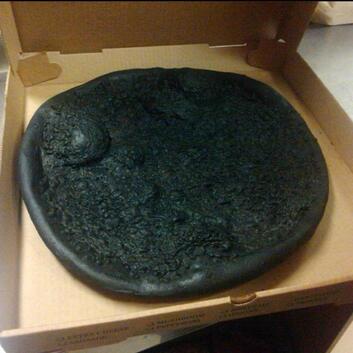
"Years and years ago there was this pizza shop I used to go to called 'Classic Pizza' that sold really good pizzas. I mean, they sold some of the best pizzas around. Most people liked the original recipe but my favorite one was 'The Next Pepperation' which was the greatest pepperoni pizza I ever consumed. Well, a few bad managerial decisions forced the owners to close their doors and all of us pizza lovers were saddened when it closed down.
The original owners of the franchise decided to try again after a few years and hired this flashy young manager to open a new pizza shop called 'Kelvin's Pizza'. It sold the same type of pizzas as the classic restaurant, but redone to look and taste flashier. While we were glad the pizza shop was back, it didn't feel the same as before. In the diner, they had spot lights that would blind you and the pizzas didn't quite taste the same, so eventually that restaurant closed. Yet soon after that restaurant closed, the owners found yet another manager and opened another one called 'NuPizza'. It promised to go back to the original recipes and improve the overall restaurant experience and so once again, I was excited and was there on opening day. Except it still felt like the Kelvin restaurant, but the pizzas were now burnt. They also began to market their pizza cutters which spun the wrong way. So I went to the management and complained. The next day I went back to give it a second shot. Once again those damn lights blinded me, there were pizza cutters everywhere and I had another helping of burnt pizza. I went to the lady eating nearby and asked 'Does the pizza here taste burnt to you?' and she responded 'I can't tell the difference, but have you seen the pizza cutters and new pizza box designs? It's good to have more diversity in my pizza boxes.' Confused, I walked out and noticed this tiny new pizza shop that had just opened called 'Orville's Pizza'. I walked in and ordered a slice. The atmosphere was pleasant. Reminded me of the Classic Pizza restaurant. They only had one type of pizza, but it tasted so much like the original that I declared this new restaurant the true successor to the classic one. Meanwhile, NuPizza continued to make burnt pizzas and putting them in boxes with diverse designs in order to distract costumers from the taste. They did make some changes though. They got rid of the flashing spot lights and created this new pizza that they considered to be as closest to The Next Pepperation as possible, so I went there to try it, but unfortunately, along with the pepperoni, they topped it off with a thick layer of memberberry sauce, which is fine in small doses, but when it's practically the whole pizza, it loses it's nutritional value. So once again, I went to management to complain that not only was my pizza still burnt, but the memberberry sauce was too thick. Management then proceeded to call me names, kicked me out of the restaurant and told me that they no longer wanted my business. Since then they've stopped advertising their pizza cutters and will be discontinuing them. I'll see you at Orville's." |
Archives
March 2024
|
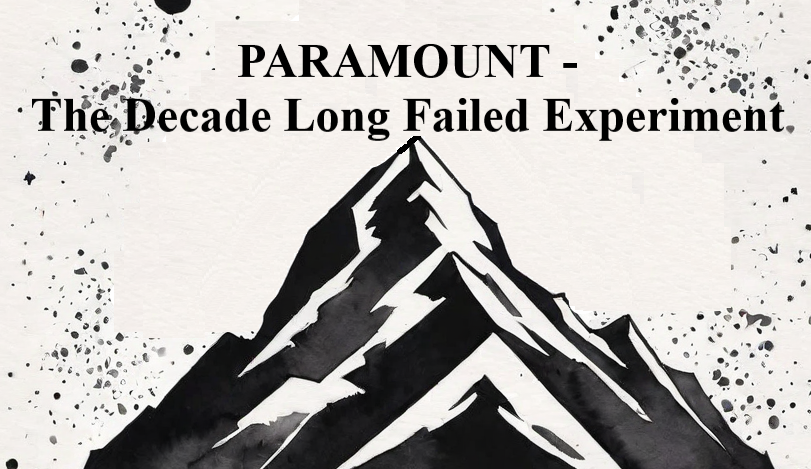
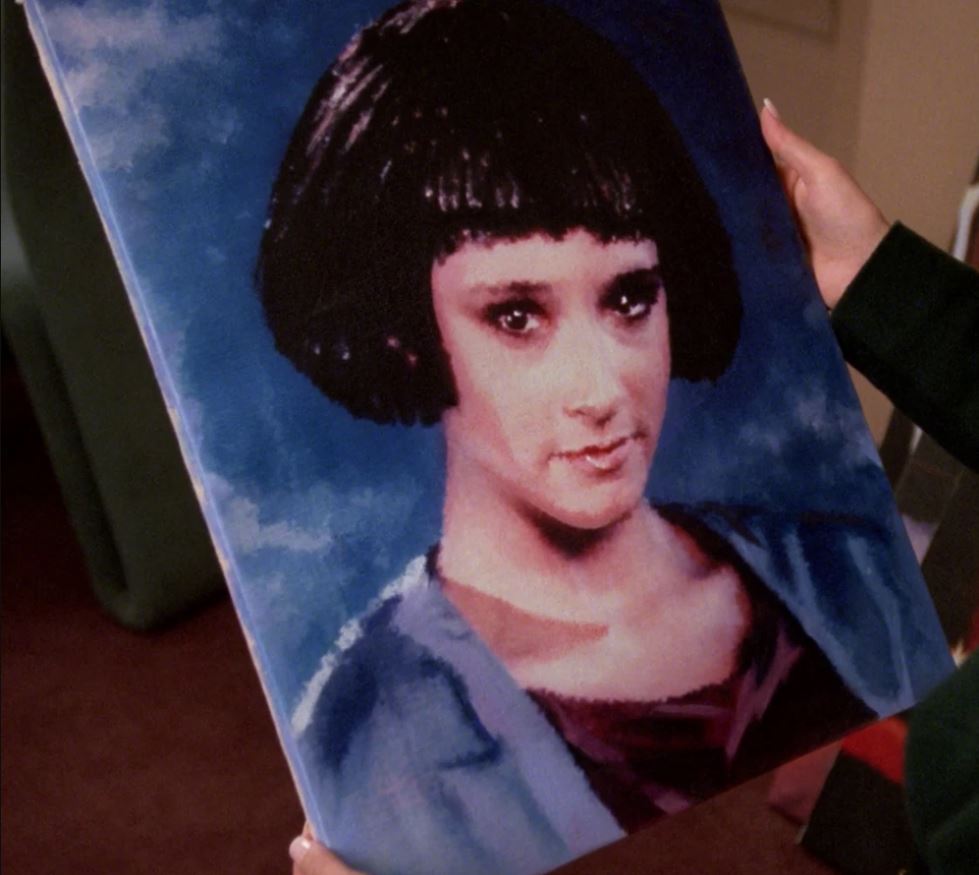
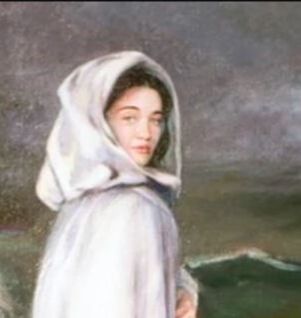
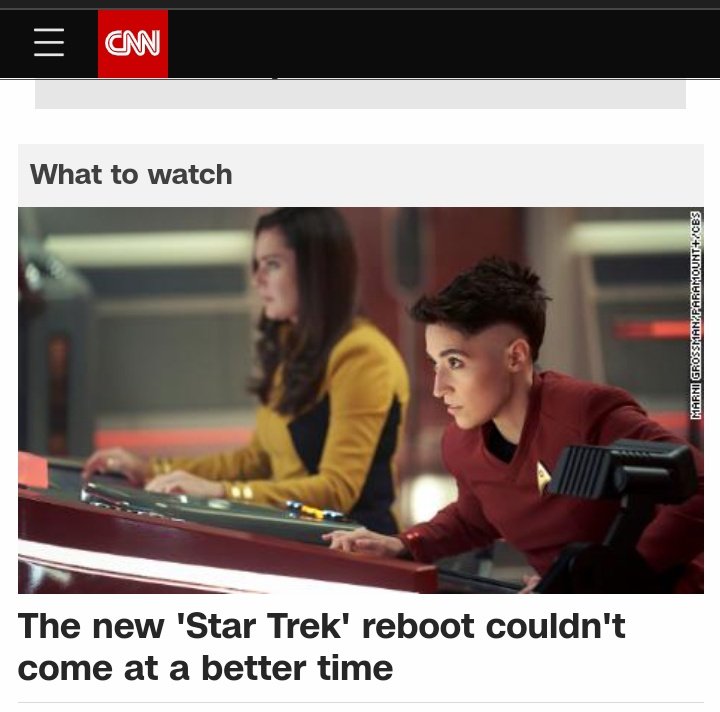
 RSS Feed
RSS Feed